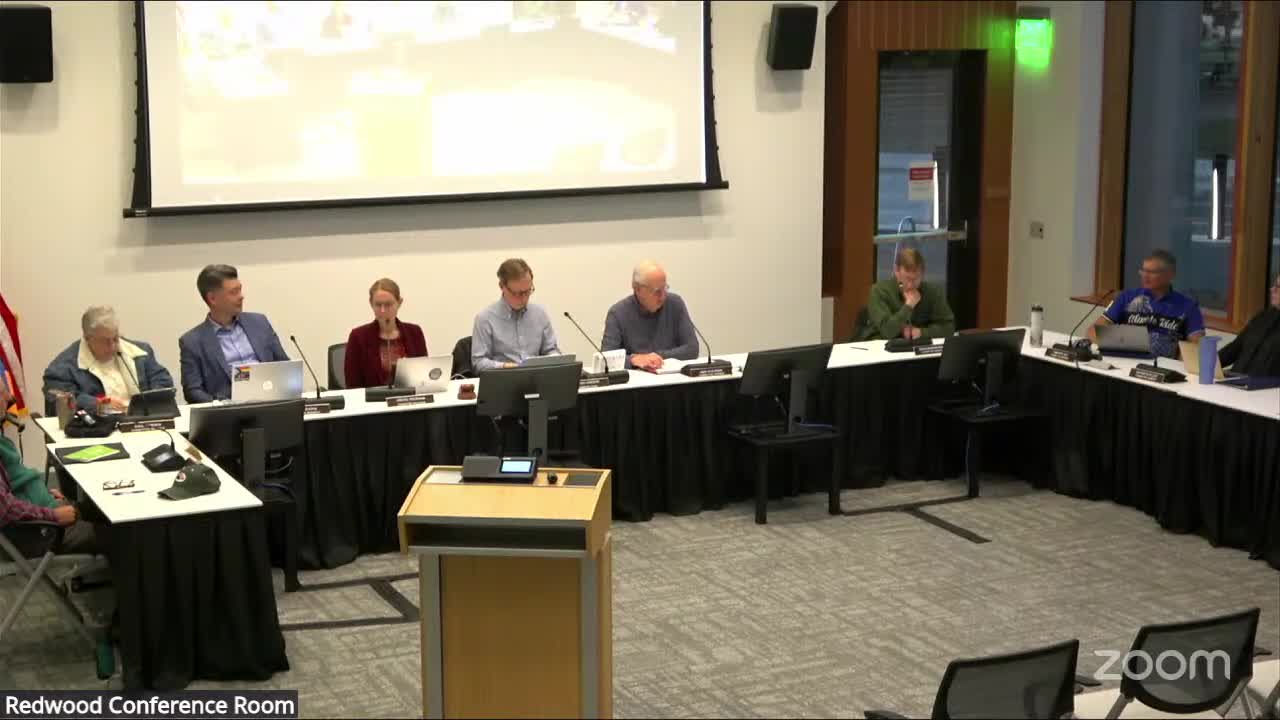Charter Review Committee recommends favoring November elections to fill council vacancies, flags ambiguity in charter language
Get AI-powered insights, summaries, and transcripts
Subscribe
Summary
The Charter Review Committee on Thursday reviewed a subcommittee draft report that recommends replacing appointed council members in most cases at the November general election rather than at a primary, citing higher turnout, lower marginal cost and broader voter representation.
The Charter Review Committee on Thursday reviewed a subcommittee draft report that recommends replacing appointed council members in most cases at the November general election rather than at a primary, citing higher turnout, lower marginal cost and better representation.
The subcommittee report, presented by Member Neuswanger, said the council was concerned that appointees who are selected in the second half of a term can face successive elections (primary then general) and serve only five to eight months before being replaced, which it described as “disruptive and inefficient of time and money.” The subcommittee recommended using the November election to replace appointees when possible and retaining flexibility so the council may still call a standalone special election when political or financial conditions favor it.
Why it matters: The committee weighed tradeoffs among speed of replacement, cost and who votes. The subcommittee cited Registrar of Voters estimates showing substantially higher marginal costs for standalone elections and lower turnout in primary elections; it reported that public survey responses favored November elections (65% of respondents on the relevant question). The report said voters in general elections tend to better reflect Sunnyvale’s demographic diversity.
Committee members pressed staff and the subcommittee on cost figures and the interaction with term limits. Member Olofsson cited examples provided by the Registrar of Voters showing a consolidated November election cost “just under $77,000” for two district items, while standalone elections can cost substantially more depending on the scenario. Staff cautioned that exact estimates depend on many variables and that the Registrar could provide scenario‑based estimates if given defined parameters.
The subcommittee also asked the committee to include a minor, nonsubstantive correction to charter language in section 606(c). The present text refers to “the city council” and then to “the remaining council members,” a wording the subcommittee said could be read to exclude the mayor from the affirmative‑vote count. The proposed fix borrows the clearer phrasing used elsewhere in the charter (section 701) and would read, in part, that decisions be made “by at least four affirmative votes,” removing the ambiguity over whether the mayor is counted.
Public comment: Two in‑person speakers urged clarity and flexibility. Zachary Kaye proposed making appointed officeholders ineligible to run while holding office; Steve S. urged retaining consolidation options and wrote that the survey did not disclose the existing situation. A public speaker later warned that choosing an election date with the intent of influencing which demographic groups will turn out could expose the city to legal challenge. Staff said the committee had not reviewed localized demographic turnout data; the subcommittee relied on overall turnout differences between primary and general elections.
What happens next: The committee did not take a formal vote on policy changes tonight. It directed subcommittees to refine their reports and staff to prepare final materials. Subcommittees were asked to submit final draft reports to staff by Nov. 19 for placement on the committee’s Dec. 4 agenda.
